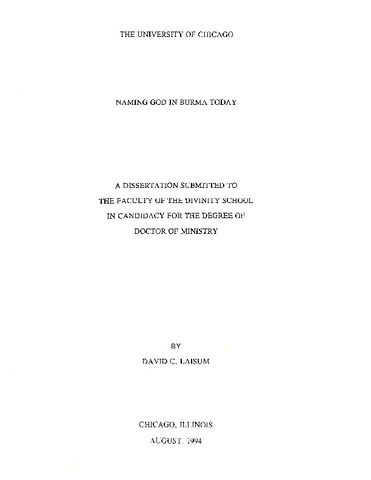Naming God in Burma today

Page views
251Date
1994-08Auteur
Share
Metadata
Afficher la notice complète
Résumé
The first Christian theological naming of God in Burma took place when Ann and Adoniram Judson, the first American Baptist missionaries who arrived in the country in 1813 AD, used a Burmese word Tavara Hpaya in explaining the Christian concept of God. By using this name, Judson explained the conceptual as well as practical aspects of Christianity to the Burmese Buddhists as answers to their worldly and ultimate religious concerns: "the improving of lives in this world and a happy life in heaven.” His creative articulation of Christian faith and missiological approach which the Burma Baptist Chronicle records as "Judson's message and method,'' is held by Christians in Burma as the "Burmese Christian tradition." However, as Christian mission work expanded rapidly among other ethnic groups in Burma, who’s social, religious, and cultural and linguistic forms were different from that of the Burmese proper, missionaries in each local context took up the task of naming God. The divine names they coined or used are meant as answers to the local.
Description
Introduction
Suggested Citation
Laisum, D. C. (1994). Naming God in Burma today [Unpublished doctoral dissertation]. University of Chicago.
Type
DissertationKeywords
Department
University of ChicagoDegree
Doctor of MinistryShelf Location
BT 212 .L35 1994
Physical Description
vi, 155 pages

